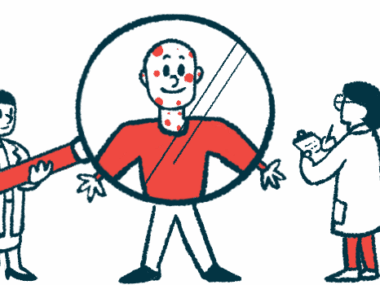Losing my identity after I had to stop working due to aHUS
I wasn't prepared for how the loss of my career would affect me
Written by |

Employment: Dare I say it’s a necessary evil? American culture is very career-focused. Everything costs money, which most people earn by working. And with the cost of living creeping higher each year, many are working more than ever just to make ends meet. But what happens when you suddenly become permanently sick in a culture that demands you work, work, work?
In the fall of 2020, I was at the top of my game career-wise. I’d worked in education my entire adult life. I’d been a preschool teacher and an assistant director at a few schools, I’d opened and owned my own preschool for five years, and I was now in a new city that was known to pay much higher wages in my field. My hard work paid off when I was headhunted, with a friend, for an assistant director position at a preschool that needed to be completely redone.
So I worked tirelessly and did so happily. Despite being a single mom and remodeling an entire home by myself, I was still consumed by work. Some days I’d work 10-12 hours, leaving me with only two hours before my kids went to bed. Then I’d tackle home projects until 1 a.m., wake up at 4:30 a.m., and start the process all over again.
But my whole life changed when I nearly died in September 2020. After months of feeling worn down, my unknown illness progressed rapidly over two weeks before I went to the emergency room. I thought I’d just been doing too much and possibly had COVID-19. To my dismay, I was actually dying from multiorgan failure. In the past I’d suffered from lupus and a few bouts of immune thrombocytopenia, but I was otherwise healthy, so organ failure was a terrifying shock.
Hours turned into days, which turned into weeks. I was barely being kept alive with dialysis, blood transfusions, and blood pressure medications. Nearly six weeks in, I was diagnosed with an ultrarare disease called atypical hemolytic uremic syndrome (aHUS). And not only that, but I also had the rarest gene mutation (a thrombomodulin gene mutation), which meant my prognosis wasn’t what I wanted to hear.
In addition, I had severe damage to my kidneys, liver, heart, vision, and uterus, which seemed permanent. I’d need monoclonal antibody infusions indefinitely to manage aHUS, as well as dialysis and a few rounds of plasmapheresis. Dialysis took four hours, three times a week, and my weekly infusion lasted a few hours. After losing 30% of my muscle mass while in the intensive care unit, I was weak and exhausted — a shadow of my former self.
But all I could think about were my children and my job. The latter should’ve been the least of my concerns, but I desperately needed it. Of course, I required income to pay bills and take care of my children. But I’d never realized that my career formed such a huge part of my identity. Who was I without it?
Losing — and rebuilding — my identity
Every date I go on, every school event I attend, every meeting with someone new, I’m always asked, “So what do you do?” I went through years of college, continued education, and certifications to work in my field, and I spent more years teaching and crafting curriculums and business plans. All of that was ripped away when I developed aHUS.
Eventually, my kidneys slowly recovered, and I went from end-stage renal failure to stage 4 chronic kidney disease. But the damage still affects me, and I live with several other comorbidities and ailments that prevent me from teaching full time. Not having income was one of the most devastating parts of this journey. I ultimately lost my home and car while battling to qualify for disability income.
Once I finally started receiving disability payments, a huge weight was lifted off my shoulders. It’s not enough to live on, but it mostly takes care of us. I tried to work side jobs while I was waiting to be approved, such as cleaning homes and nannying, but it was physically too much. I experienced a few health scares during those gigs.
It’s been a long road to figure out what my life looks like without my career, but I’ve realized that a job is never more important than my family or my health. Even though I lost my career, I’m grateful to have more time with my family and more opportunities to relax and enjoy life.
Note: aHUS News is strictly a news and information website about the disease. It does not provide medical advice, diagnosis, or treatment. This content is not intended to be a substitute for professional medical advice, diagnosis, or treatment. Always seek the advice of your physician or other qualified health provider with any questions you may have regarding a medical condition. Never disregard professional medical advice or delay in seeking it because of something you have read on this website. The opinions expressed in this column are not those of aHUS News or its parent company, Bionews, and are intended to spark discussion about issues pertaining to aHUS.






Leave a comment
Fill in the required fields to post. Your email address will not be published.